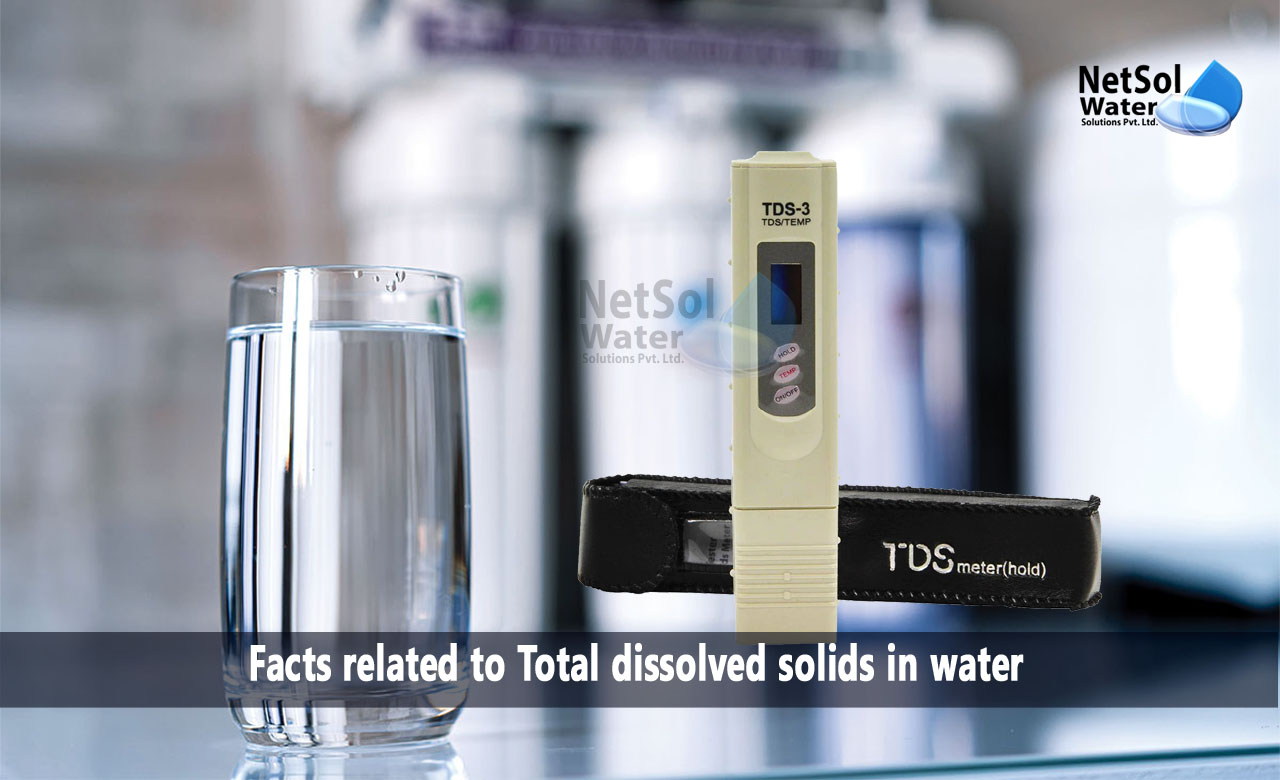Facts related to Total dissolved solids in water
Total Dissolved Solids, or TDS, is a term used to describe the overall concentration of dissolved materials in drinking water. TDS is made up primarily of inorganic salts, while some organic substances are present as well.
The amount of TDS is determined using an electrical current that monitors EC levels, because ionized solids will increase the electrical conductivity (EC) of water.
Let’s look at the various facts related to Totals dissolved solids in water.
Why should TDS be measured?
A high TDS level indicates that your water has a lot of dissolved materials, most commonly minerals. The persistent presence of these minerals in your water over time can cause scale accumulation in your pipes and appliances, reducing the efficiency and lifespan of those items.
Is TDS beneficial or harmful?
Many people associate TDS with water pollutants like sewage and runoff, when they think of toxins in the water. TDS, however, is not always harmless or dangerous in nature. The Environmental Protection Agency (EPA) specifies that 500 parts per million are the maximum amount of TDS, which can be present in safe drinking water. But, just because a water sample's TDS value is less than 500 ppm doesn't imply that it's safe to drink.
TDS testing by itself is unable to identify the elements that are dissolved in water, even though it can measure their quantity. Because of this, TDS testing frequently forms a component of a more thorough water-quality monitoring plan, which also includes measurements of temperature, conductivity, salinity, and pH.
What is TDS meter?
A TDS meter is a tiny, portable instrument used to measure the amount of total dissolved solids (TDS) in a solution, often water. Due to the fact that dissolved ionized solids, such as salts and minerals, enhance a solution's conductivity, a TDS meter detects the solution's conductivity and infers the TDS from that value.
Causes of high TDS levels
Very high amounts of organic TDS are the cause of the yellowish, rusty limestone. The carbonic acid that is created when hot water is driven to the earth's surface, dissolves limestone strata buried deep within the crust.
The CO2 is released when the hot spring water ultimately comes into contact with the air, turning the dissolved limestone back into a solid mineral deposit.
Why is TDS testing important?
TDS measurement has uses in aquaculture, renewable energy research, hydraulic fracking, food and beverage production, and many other industries. It can be a significant component of scientific, medical, and environmental research.
Conclusion
You may have heard about using a TDS meter (also known as a TDS tester), to check for toxins if you're worried about the quality of your tap water but aren't sure if you need a water filter! A TDS meter is often simple to use and reasonably priced.
How can we assist?
Netsol Water is one of India's largest water and wastewater management companies. We are focused on the design, production, and delivery of specialized water treatment plants, wastewater treatment plants, sewage treatment plants, effluents treatment plants, and especially RO Plants.
These are highly successful at removing pollutants from commercial and industrial wastewater. Contact us at +91 9650608473 or enquiry@netsolwater.com for expert advice.



